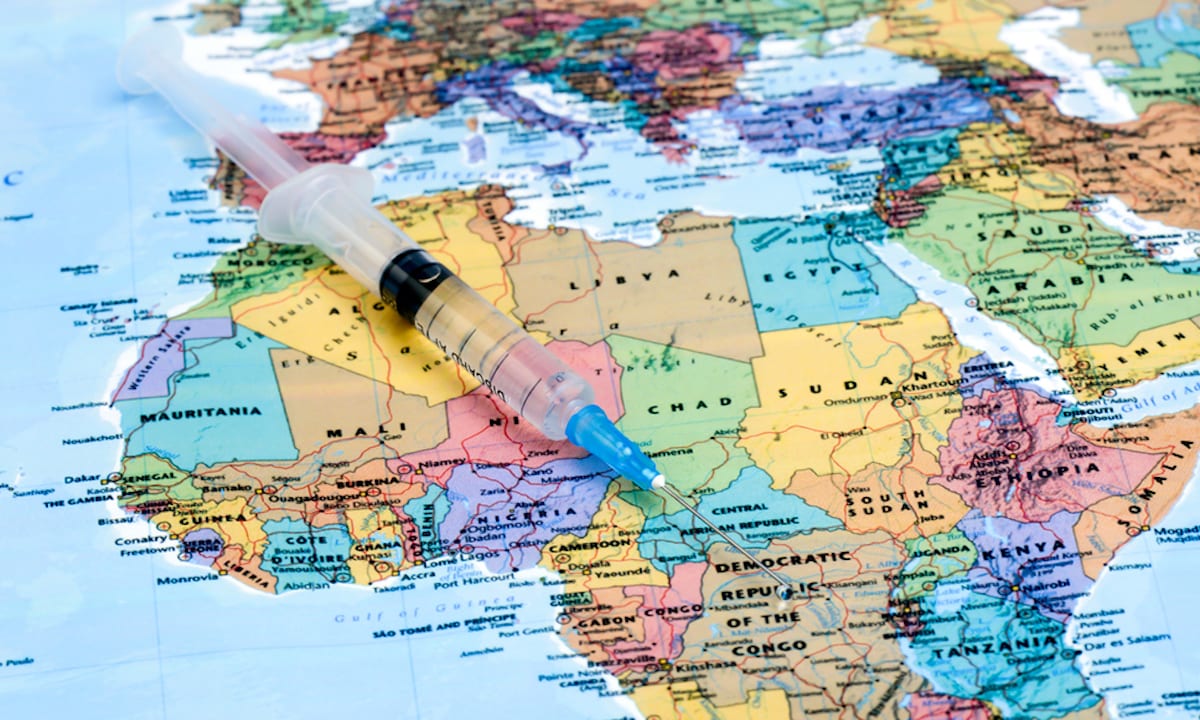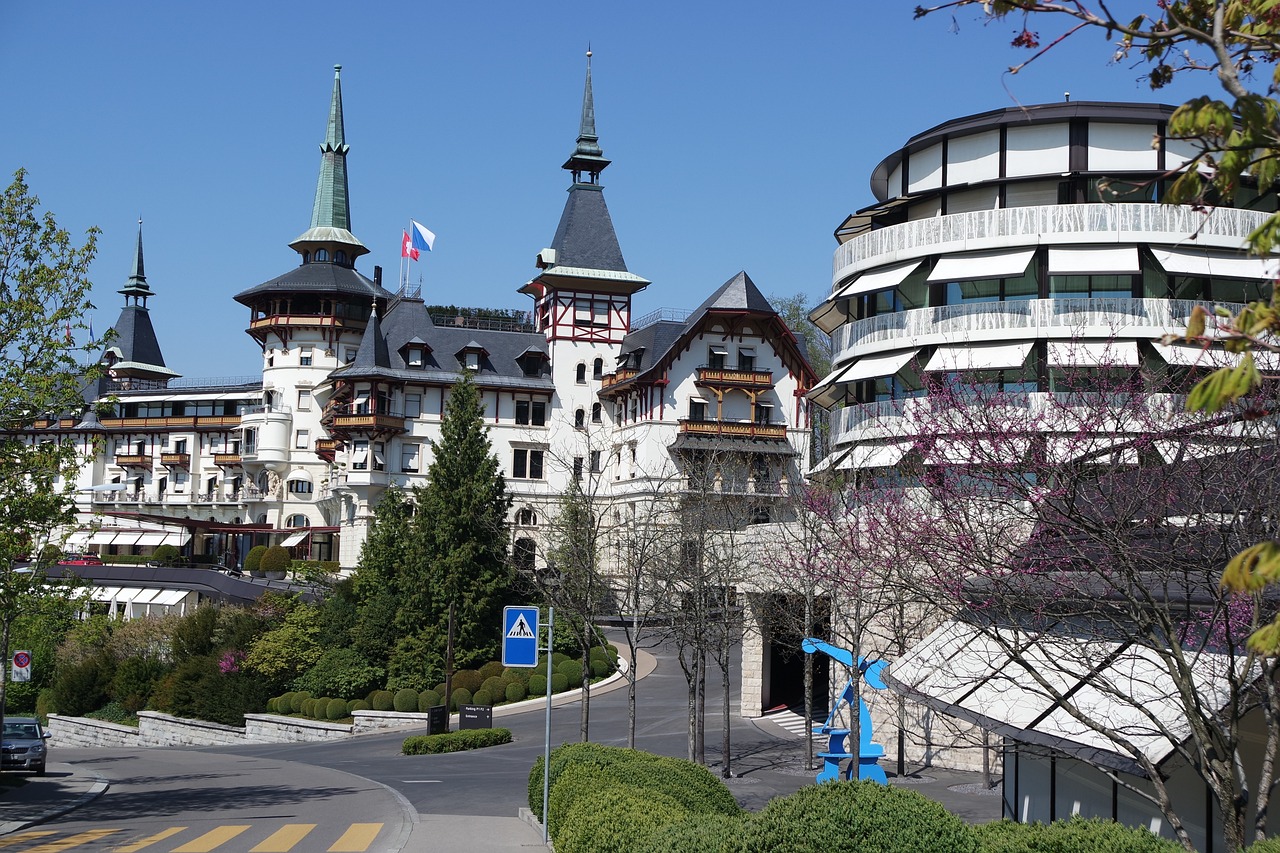Post-Vaccine Travel – In many countries around the world, including the UK and USA, vaccines are now being administered to the elderly, health workers and people with health conditions. Finally, at the end of this long, dark tunnel there seems to be a big, bright light, which is now shocking all of us for a year.
So the question is, when can we get out and explore the world again? As more and more of the global population is vaccinated, those who are stuck at home for over a year will no doubt be tempted to travel far and wide – whether it is to see family and loved ones , Or just a big trip. ‘Have always dreamed. Many of us have operated in the last 12 months thinking about future travel plans, and soon it seems that we may actually be able to act on them.
But the arrival of such good news – not one, but many effective vaccines, which are already in the hands of governments and healthcare providers around the world – will likely be accompanied by a heap of new regulations and restrictions that make international travel a little more. Can be complicated. Here you have to know everything you need to know.
1. Vaccines could help ease border restrictions by mid-2021
The travel industry is confident that the rollout of the vaccine will enable some countries to take measures for lockdown, reopening borders and easing travel restrictions. Fast-acting – such as the UK, which has promised to have more than 50 vaccinations to all by April – will also see a significant increase in confidence among travelers.
Michael O’Leary, chief executive of the low-budget airline Renair, told the BBC’s Today program last month: ‘We think the vaccine will remove governments’ ability to shut people down, it [Britain’s national] health Removes the risk of the service being overwhelmed, and we think it will certainly – by the summer of 2021 – definitely be a return to families going on much-needed holidays within Europe. ‘
2…but face masks and social distancing are here to stay
Normally it would take months and possibly years for vaccines to be sufficiently distributed for a full withdrawal. But beyond the huge logistical task of rolling them out, their effectiveness in stopping transmission still remains to be questioned. All the major, globally accepted vaccines (from Pfizer / Bioentech, Modern and AstraZeneca / Oxford) have been shown to limit the worst effects of Kovid-19, but it is unclear whether they are actually lowering you. Are, instead of reducing symptoms.
In other words: vaccinated individuals may still be able to catch and spread the disease. This means that everyone – even those who have the jab – will still have to take precautions (wearing masks, washing hands, social distance) or so unless a) The researchers have not shown that it prevents transmission Is, or B) has been adequately vaccinated of the world’s population to reduce the risk of heavy health services anywhere. Some countries did not open their borders until the impact on vaccine transmission was better understood.
3. Some countries and airlines may require proof of vaccination
It is likely that some countries will allow proof of vaccination as an alternative to testing and quarantine requirements. In some countries – particularly in places such as Australia, China and South Korea, where authorities have done a good job of preventing local transmission of the virus – it can also become an entry condition.
Australian airline Qantas boss Alan Joyce has said that his airline will need proof of vaccination at some point. Now he plans to change the airline’s terms and conditions to only those passengers who have been vaccinated.
However, other airlines have reported that Joyce was specifically talking about 12 to 14 hours of long-haul flights – for domestic or short haul flights, which require little evidence of vaccination.
He was supported by Paul Charles, a travel expert at the PC agency, who said: up IATA [International Air Transport Association] is taking a backseat from the idea of travelers to prove that they have been vaccinated. But I don’t think it would work as an idea for short flights. I can see why islands like Australia want to do this but it is difficult for connected destinations like European countries. ‘
This being said, some countries have already announced that they will allow vaccination to exclude arrivals. From March, passengers who have received the jab for Cyprus will be exempted from the requirements of testing and self-isolation. And Seychelles is already allowing those vaccinated to enter quarantine.
Lawrence Wong, co-head of Singapore’s Virus Taskforce, said his country is considering loosening travel restrictions for those who have received the vaccine. However, this will happen only once when vaccines have been proven to significantly curb the spread of the virus.
Later this week, EU leaders will also meet to discuss a resolution for those who have permission to travel freely for the vaccine. It is unclear whether these plans will now include the UK, which left the European Union on 1 January.
4…so those slips of paper the doctor gives you are very important
When you go to get your job, you should keep every document you have received. There is no consensus yet on what constitutes proof of vaccination, so you should ensure all relevant papers, such as doctor’s appointment notes and medical leaflets.
Most importantly, you will be assigned a vaccine certificate stating your name, date of vaccination, the specific vaccine administered and the location of your administration center. Keep it in your wallet.
5. Eventually, you may need to provide a ‘health passport’ at border control
When vaccines are more widely distributed (and their impact on virus transmission is better understood), it is likely that medical authorities around the world will receive globally recognized certification for one or more specific jobs. Will beat – as for yellow fever already. For example vaccine. The World Health Organization has suggested that such a certificate may be important for reopening international travel.
Many companies have started developing smartphone apps that allow users to record details of their testing and vaccination history: a ‘health passport’ that airlines or countries may require as a condition of entry .
The Common Trust Network, operated by the World Economic Forum and offers non-profits to the Commons project, has teamed up with various international airlines to create the CommonPass app. It uses test and vaccination data to create health certificates in the form of QR codes that can be scanned across borders.
IBM has also developed its own Digital Health Pass, which allows companies and locations to list conditions such as admission, testing, temperature, and vaccination records. Visitors can store their data in a mobile wallet to be presented upon arrival.
With many similar but different initiatives at the same time, the open-source tech organization The Linux Foundation and the Kovid-19 Credentials Initiative (which represents dozens of firms working in the sector) are among the universal standards for such apps. Working on developing a set. .
They all face some serious challenges in the coming months – particularly the data-privacy concerns of individuals and particularly the viability of jabs, such as those developed by China and Russia. But still, it seems that the rollout of the ‘Health Passport’ could be the same as the global tourism industry has to get back on its feet.
Related Articles – Travel Industry – How Technology Is Driving | Air Bubble Arrangements In India To Enable Travel
Frequently Asked Questions About Post-Vaccine Travel
Q. What happens if you don’t get the second Covid vaccine?
A – So if you don’t get the second dose your immunity may wear off sooner, making you more vulnerable to infections. You may not get that six to nine months, or even longer, protection. It may be for a shorter period, and then that will increase the risk of a “breakthrough” infection.
Q. Can you get Covid after vaccine?
A – A small percentage of people fully vaccinated against COVID-19 will still develop COVID-19 illness. COVID-19 vaccines are effective. However, a small percentage of people who are fully vaccinated will still get COVID-19 if they are exposed to the virus that causes it.
Q. How long does the Covid-19 vaccine last?
A – So far, Pfizer’s ongoing trial indicates the company’s two-dose vaccine remains highly effective for at least six months, and likely longer. People who got Moderna’s vaccine also still had notable levels of virus-fighting antibodies six months after the second required shot.
Q. Can you get Covid vaccine while you have Covid?
A – Can I get the vaccine if I have COVID or already had COVID? If you currently have COVID-19, wait until you have recovered from your illness and can be around others again before you get vaccinated. This also applies to people who get COVID-19 between their first and second doses.
Q. Can you spread Covid if you are vaccinated?
A – Kobayashi noted that experts still don’t know if someone who is vaccinated can transmit the virus or not. The U.S. Centers for Disease Control and Prevention is “keeping a close eye” on COVID-19 cases in fully vaccinated people.
Q. Who is most at risk for COVID-19?
A – COVID-19 is often more severe in people 60+yrs or with health conditions like lung or heart disease, diabetes or conditions that affect their immune system.
Q. Should you meet with other people during the COVID-19 pandemic?
A – In this difficult period it is best to meet virtually but if you have to meet others, do it carefully and with the right precautions.









